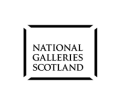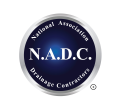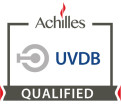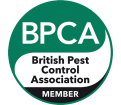
Call 0333 567 2020 for advice and quotes or contact us online

Best Practice Advice for Developers on Nesting Birds
Surveys and Mitigation for Development Projects
Wild birds, their young, eggs and nests are protected by the Wildlife and Countryside Act 1981 with some birds (schedule 1) provided additional protection from disturbance. As licencing authorities will not issues protected species licences in relation to development, birds do have the potential to have significant adverse effect on operations.
NBC Environment are the countries leading experts in helping clients navigate these issues liaising with ecologists, licensing authorities and other stakeholders to ensure our clients are compliant and any impact minimised.
Details of the many projects that we have supported with references are available on request.
We have detailed below current government best practice advice to help developers consider and manage this risk. Given the potential for serious litigation we advise any project that has the potential to come into conflict with nesting birds takes professional advice and ensures decisions are documented and auditable.
Ecological surveys
A CIEEM accredited ecologist will likely have completed a survey and ecological impact assessment for wild birds including:
- Barn Owls
- Breeding Birds
- Wintering Birds
- birds listed in Schedule 1 of the Wildlife and Countryside Act
- birds listed in Section 41 of the Natural Environment and Rural Communities Act 2006
- red and amber list birds of conservation concern
The ecologist will assess the impacts the development will have on wild birds and provide advice on avoidance, mitigation and compensation methods..
Firstly developers will be asked to consider whether the development could be done differently to avoid affecting birds, eg by:
- siting the development away from breeding birds
- avoiding parts of the site
- doing works at a different time of year to avoid the breeding season (March to August)
- ensuring important habitats are protected and maintained
- remove habitat features when they are not being used by birds, eg remove habitat before nesting season
Provide replacements for any nesting sites removed, such as:
- nest boxes, peregrine ledges and black redstart boxes
- creating new habitat
Mitigation: prevent birds nesting
If you can’t change the timing or location of your activity to avoid affecting birds, you can prevent birds from nesting, with bird proofing measures, providing you do not harm the birds, any eggs and/or nests. If schedule 1 birds are identified once nesting they are protected from disturbance.
You can prevent birds nesting by:
- blocking access to nest sites
- clearing vegetation or structures used for breeding
- using mechanical deterrents such as lasers, gas guns, kites or other methods.
- Establishing a dispersing presence using live hawks, falcons or dogs.
Compensation measures:
Providing alternative nest sites not only offsets any adverse effect operations may have on populations it also supports mitigation measures when developers have areas on site where nesting could impact operations and areas where it would not. Compensation measures could include:
- nest boxes and peregrine ledges
- creating new habitat by planting native trees, shrubs or plants, or ornamental species of high value to wild birds
- improving links to habitats
Birds most commonly experienced on developments:
Whilst all nesting birds have the potential to impact or be impacted by developments our experience is that these species listed below are those most likely to come into conflict;
Lapwing (Vanellus vanellus)
Little Ringed Plover (Charadrius dubius) Schedule 1
Skylark (Alauda arvensis)
Starling (Sturnus vulgaris)
House Sparrow (Passer domesticus)
Peregrine Falcon (Falco peregrinus) Schedule 1
Herring Gull (Larus argentatus)
Lesser Black Backed Gull (Larus fuscus)
Note: Some content credit from GOV.UK (www.gov.uk)
Author: NBC Environment/Orkin























